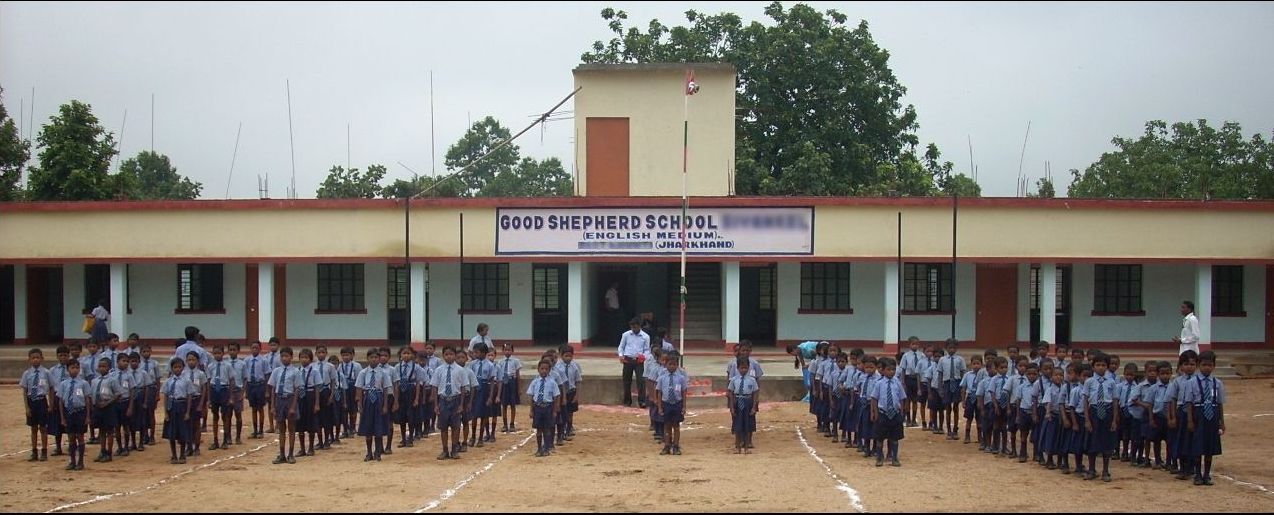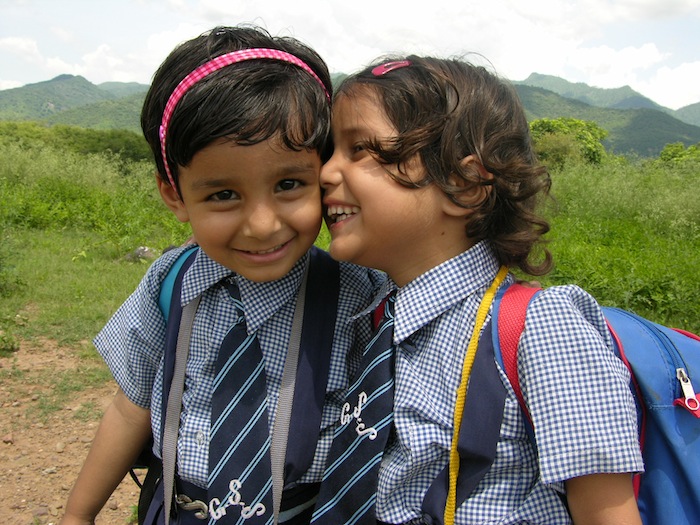
On 23 June 2014 our RED International team of 11 people set out for the summit of Kilimanjaro and all of them received a certificate for making it to the summit. To learn more about RED International, click here.
At 5,895m, Mount Kilimanjaro is the highest walkable mountain in the world and therefore requires no technical experience or equipment. Reaching the roof of Africa is however a considerable and, at times, gruelling challenge. The midnight ascent to the summit is the toughest test both physically and mentally but the effect of being at altitude will also play its part throughout. A good level of physical fitness and a strong will is therefore required, and advance training and preparation is advised to help achieve your goal and enjoy the experience of doing so.
The team undertook their journey to 5,895m via the 6-day Rongai Route. Beginning in the north of Kilimanjaro National Park in a small village called Nale Moru, the trail headed west towards Uhuru Peak. The 6 days that followed required between 4-7 hours daily trekking, until arriving at Kibo Huts Camp situated at 4,700m - the route's base camp. The gruelling midnight ascent to the summit followed, rewarded by sunset over Africa upon reaching the crater rim - offering views and a sense of achievement that are unparralleled and which will last forever. A short stay at the summit was followed by a descent to the trek's final Horombo Camp situated at 3,720m.
The cost of this challenge was £2,350. In addition to trip costs, every RED International Kilimanjaro Challenge team member was given a suggested fundraising target of £2,000 to directly support RED International's work in supporting Dalit communities in India. Learn more.
RightFoot is a highly experienced tour organiser and RED International's partner in facilitating this exciting Kilimanjaro Challenge experience.
RightFoot is a member of the IMEC Partnership for Responsible Travel - we take this responsibility very seriously & endeavour to ensure that the service provided is always ethical & of the highest standard. RightFoot is ATOL bonded (license number 10556) to provide security for the monies that you pay for the package holidays booked and for your repatriation in the unlikely event of insolvency.
Find out more about the challengers or make a donation by clicking on a picture below:


RED International exists because extreme poverty and marginalisation still impact more than one billion people around the world, and we want to change this.
Hundreds of millions of families and their communities still lack access to things that we in the developed world take for granted – such as access to decent water, proper sanitation, healthcare and education. All of this results in high rates of infant and maternal mortality, and a cycle of poverty that it seems impossible to escape from.
RED International works with implementing partners who are tackling these issues every day, and are making a real and long-term difference in the lives of the poor and marginalised through their programmes. Put simply, we are seeing lives and communities transformed through the projects we are involved with.
RED International’s work includes the development and resourcing of schools serving the Dalit communities in India. Our partner in India now operates 107 schools, helping to serve 26,000 children. This vital work is educating and empowering the next generation of Dalit Children, providing basic healthcare and supporting the women of these communities to take a stand against the scourge of human trafficking.
Thanks to the generous support of our donors in the UK, RED International has been involved in supporting school projects in India since 2007. This includes construction at 5 schools, provision of education for more than 200 children, training for 10 community health workers and - thanks to the generosity of BUPA Giving - 2 mobile clinics which support the health programme in two of India’s regions. We are also raising funds to support women’s empowerment, and economic development projects to support the wider communities in the locations where the schools are based.
RED International is also involved in rural education projects and school support in Bangladesh, and has also been helping to support relief work among Syrian refugees in Lebanon and Jordan.

A paper recently published by the Lancet on Maternal and Child Nutrition reported that 3 million children died of under-nutrition in 2011. The 2012 UN Food and Agriculture Report said that 868 million people in the world suffer from under-nourishment, and the negative health consequences of micro-nutrient deficiencies continue to affect around 2 billion people.
The issue of poverty and under-nutrition is not just limited to the world’s poorest countries, but also some of the world’s growing economies, such as India which has 217 million, or a quarter of the world’s under-nourished - only slightly better than sub-Saharan Africa which has 234 million. A UNICEF India report on under-nutrition states that under-nutrition is the underlying cause of about 50% of the 2.1 million under age 5 deaths in India each year. Although these figures show that the challenge is still huge, these reports also show that things are improving. In 1992 the total number of under-nourished in India was 240 million or 26.9% of the population; the current figure represents 17.5% of the population.
Although in the UK, DFID (the Department for International Development) is stopping bi-lateral development grant aid to India from 2015, they still acknowledge that India is still home to one third of the world’s poor people living below $1.25 per day – more than all the poor in sub-Saharan Africa.
In India our partner has been working for more than a decade focusing on education, health and empowerment programmes serving the marginalised Dalit communities through their network of 107 schools. Dalits now number 300 million - more than a quarter of the Indian population. The UNICEF report confirms the importance of education in the area of child mortality: children born to mothers in India with at least 8 years of education have a 32% lesser chance of dying in the neonatal period and a 52% lesser chance of dying in the post-neonatal period, as compared to illiterate mothers. It is clear that economic growth alone will not help tackle these issues without other specific interventions.
The Dalit people of India, numbering up to 300 million, are those the Hindu caste system designate as the “low” or “backward” caste. Due to their low social standing and the stigma of ‘untouchability’, Dalits are denied basic human rights and suffer psychologically, socially and economically. The majority live on less than 70p per day and 85 per cent of bonded labourers in India are from are Dalits. Furthermore they are denied access to public wells, public parks, basic medical services, and even Hindu temples. In 2001, the stark reality of the Dalits’ plight, after being subjected to this for generations, caused the Dalit leadership to fight these oppressive structures and insisted that the best way to change lives and achieve measurable goals is through providing an education that is based on human dignity, self-worth and equality.
The invitation to educate Dalit children was enthusiastically accepted, and minorities across the country pledged their solidarity with the Dalits. Over a decade later and there are now 107 Good Shepherd Schools (GSS) that are educating up to 26,000 Dalit children between the ages of 3 and 15 years old.

The school which will be supported by the trek is in a small village in the state of Jharkhand in North India. The village is dominated by Dalits and is largely ignored by surrounding towns. Like the situation of so many other Dalit communities, the Dalits in this location and in the surrounding area are subjected to a great many complex, and often oppressive, problems that severely prohibit social, economic growth and development. These include lack of access to clean running water and proper sanitation leading to various preventable illnesses. A high percentage of people are illiterate (85%) whose only options for employment are very low-income menial jobs. Their poverty often leads to drug and alcohol addiction as well as, domestic abuse.
When the village leaders asked for a school to start in the village, this was the beginning of transformation within a 5 kilometre radius where there are about 1,000 children of school age. The Good Shepherd School opened in 2007 and now educates 227 Dalit children. The impact education is having is bringing hope to whole families. Hannah is a Grade Three student and loves her education. She believes that the school is her “ray of hope” in the midst of uncertain circumstances at home; her parents left to find better work elsewhere so Hannah lives with her elderly grand-mother who struggles to make ends meet. This bitter/sweet story is reflective that even though the school is bringing hope, there is much still to be done if entire generations are to be freed from caste oppression.
It is so often the case that the GSSs not only provide Dalit children with an education but they are the catalyst of holistic development and transformation within the wider community. The benefits of giving the Dalit community an opportunity to work towards complete emancipation from slavery through education has resulted in growth economically, socially, spiritually and physically. That is why when a GSS student graduates, this signifies the start of their effective contribution to Indian society and symbolises the wider impact education has had in their community.
The Staff at the school are working towards this goal of providing a full education from Lower Kindergarten to Grade Ten. The first phase of the school was completed in 2010 and the school is now ready to begin the next phase of construction which will add four more class rooms to the school. At the moment there are still about 800 children who are yet to receive an education in the area around the school, which emphasises the great need for more classrooms at the GSS.
Our fundraising goal is £50,000 to build four more classrooms providing education for 120– 150 children per year.
For more information about RED International, click here.
Got a question? We hope you will find the answer in the information below. However, if you have any further queries, please complete the online enquiry form and we will answer your question as soon as possible.
Click a question below to expand the answer.